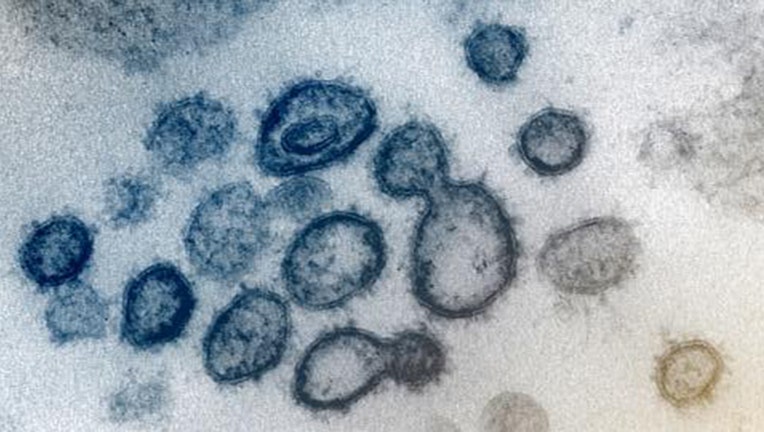Coronavirus particles could stay in air for ‘several minutes’ indoors, researchers warn

Coronavirus particles could stay in the air for “several minutes,” according to a new study, adding to the importance of avoiding heavily populated indoor places.
“Preliminary results indicate that aerosol particles carrying the virus can remain in the air longer than was originally thought, so it is important to avoid busy public indoor spaces,” the researchers explain in a statement. “This also reduces the risk of droplet infection, which remains the main path of transmission for coronavirus.”
The Centers for Disease Control and Prevention (CDC) recently recommended wearing cloth face coverings in public settings where other social distancing measures are difficult to maintain, such as grocery stores and pharmacies. This is particularly important "in areas of significant community-based transmission," the CDC said.
Related: Nurse at Raymond James testing site describes emotional ups and downs of fighting COVID-19
The research was undertaken by experts from Finland’s Aalto University, the Finnish Meteorological Institute, the VTT Technical Research Centre of Finland, and the University of Finland.
Experts studied how small airborne aerosol particles are transported in the air when emitted from the respiratory tract when sneezing, coughing or even talking.
“The researchers modeled a scenario where a person coughs in an aisle between shelves, like those found in grocery stores; and taking into consideration the ventilation,” they said in the statement. Each research institution performed its modeling independently but employed the same starting conditions.
The researchers all obtained the same preliminary result.

Why social distancing can save lives amid COVID-19 pandemic
Social distancing is not only about preventing the illness itself, but rather, slowing the rate at which people get sick.
“In the situation under investigation, the aerosol cloud spreads outside the immediate vicinity of the coughing person and dilutes in the process,” they explained, in the statement. “However, this can take up to several minutes.”
The study could have major implications for the spread of coronavirus.
"Someone infected by the coronavirus, can cough and walk away, but then leave behind extremely small aerosol particles carrying the coronavirus,” explained Aalto University Assistant Professor Ville Vuorinen in the statement. “These particles could then end up in the respiratory tract of others in the vicinity.”
In their study, the researchers modeled the airborne movement of aerosol particles smaller than 20 micrometers, noting that the particle size for a dry cough is typically less than 15 micrometers.
“Extremely small particles of this size do not sink on the floor, but instead, move along in the air currents or remain floating in the same place,” they said in the statement.
Related: Trump, DeSantis tout malaria drug in COVID-19 fight while doctors remain cautious
A supercomputer at CSC, which is the Finnish IT Center for Science, and 3D-visualization technology were used in the research.
The coronavirus pandemic has resulted in a flood of research across the globe.
In a separate study, Yale researchers say that we may get some respite from the pandemic as we move into spring, although this depends on how indoor environments adapt. While the effectiveness of social distancing measures obviously plays a crucial role in battling the spread of COVID-19, the scientists are also eyeing changes in relative humidity indoors from winter to spring to summer.
The Yale scientists’ research was published March 23 in the Annual Review of Virology.
As of Wednesday morning, at least 1.45 million coronavirus cases have been diagnosed worldwide, at least 399,979 of which are in the U.S. The disease has accounted for at least 83,568 deaths around the world, including at least 12,911 people in the U.S.
If you feel sick:
The Florida Department of Health has opened a COVID-19 Call Center at 1-866-779-6121. Agents will answer questions around the clock. Questions may also be emailed to covid-19@flhealth.gov. Email responses will be sent during call center hours.
LINK: Florida's COVID-19 website
CORONAVIRUS IN FLORIDA: What you need to know
AROUND THE WORLD: CoronavirusNOW.com
Map of known COVID-19 cases:
MOBILE APP USERS: Click here for map

